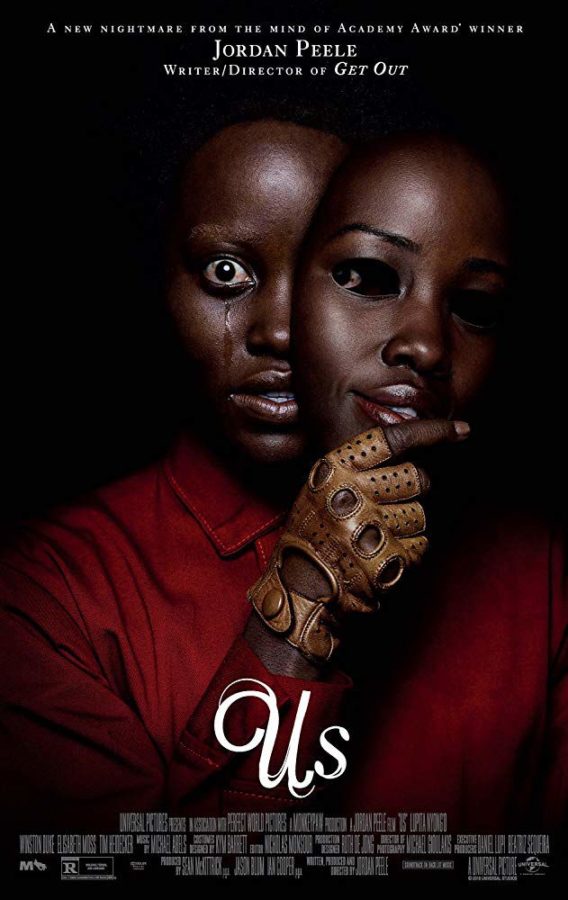‘Us’ proves Jordan Peele is more than a one-hit wonder
jordan peele us poster
March 31, 2019
Jordan Peele hones his horror craft in new movie, “Us,” delivering another refreshing and inventive crowd-pleaser.
After taking home the best original screenplay Oscar for 2017 hit “Get Out,” Peele confirms he’s comfortable working within the horror genre by sticking to his talents. “Us” can read as a pure horror film, but still begs the viewer to have a conversation.
In “Get Out” the specific social commentary on race relations is on the nose in its premise, but “Us” takes a more subdued approach in a more ambitious plot. When the vacationing Wilson family becomes hunted by murderous doppelgängers, twists and turns ensue. However, the tension leading to the inevitable home invasion is more interesting then the home invasion itself.
The actors are convincing as both the ordinary Wilson family and their evil counterparts, Lupita Nyong’o leads as one of the best components of the film. Peele knows how to cast and create likeable, realistic characters.
Peele has no problem incorporating comedy, but comedy at the expense of the horror deflates tension when the plot is more tense. “Us” falls short of being truly scary by opting for a light-hearted tone.
The occasional comedic character interaction paired with the likeability of the characters failed to create a true sense they were in any danger. The horror or chase sequences of the movie fall a little flat if you’re not easily scared. The artistic craft in the score, direction and editing, however, manages to prop up these weaker moments.
Part of the enjoyment of “Us” comes from discussion of the film and seeing details other people picked up on that you missed.
Peele displays a directorial trademark by building subtle connections in every character, line of dialogue, set piece and prop to something else in the movie. Constant interpretation of imagery and dialogue enhances the “Us” experience, but the more the plot unfolds, the more unanswered questions are raised.
The film’s ambitious nature rides a fine line between muddled and metaphorical. By giving too many literal details away, Peele reveals the pure absurdity of the plot. While the social themes evolve with more connections and interpretation, the raw plot itself falls apart. Perhaps Peele didn’t want to be too ambiguous, but opting for more ambiguity would have boosted the film’s expansiveness and impact.
Peele’s imagination, direction and passion for horror on display in “Us” is still enough to put it up with the best of modern horror outings. He shows his strengths are in creating a premise, building tension and writing believable characters, but shows weakness in constructing a fully fleshed out plot. “Us” cements promise for Peele in whatever horror project comes next as it’s sure to be at the very least interesting.







